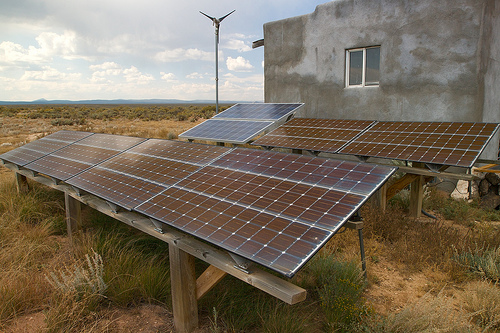There are only two relatives I’ve ever known to whom I’ve felt a strong biological connection. One of them died last month. This is a tribute to her…
I spent the majority of my early childhood growing up with my mother in a single-room add-on attached to the side of my grandmothers house in a Northern suburb of Chicago.
My mother never went to college and worked very hard to keep us financially safe doing jobs such as data entry. She is a very hard worker that gains personal satisfaction from a job well done and was always gainfully employed, so we were never poor in the hungry, homeless or other romantic sense, but firmly lower class, yes. My mom still loves to tell the story of how I didn’t understand you could purchase food without a coupon clipped from the Sunday paper. She didn’t have a lot of free personal time due to being a single parent, but made it work. I don’t think I would handle that lifestyle well, and have a tremendous respect for single parents trying to make ends meet while “being there” for the kid(s). I was even fortunate enough to get a hand-me-down obsoleted Macintosh computer from my mother’s coworker on which I typed school papers from elementary school until high school.
The land and house I grew up in had been established by my grandparents some years after World War II. My grandma grew up on a farm and filled the house walls with rural-feeling nick-nacks and small-town artifacts. The surrounding neighborhood became caught in urban sprawl and began to transform into luxurious mansions settled comfortably on 1-acre lots.
My father is a South Korean immigrant who came to America for a better life, and eventually found his place in California. The balls it takes to pack a suitcase and move to a foreign country with a pocket full of dreams continues to astound me. I recall listening to him confidently lay out his plans to run his own successful businesses as so many other Asian immigrants did in Los Angeles. Looking back on the first 18 years of my life, I now realize…
Having less in an environment of opportunity can be empowering.
When you have less, you feel like you must improve yourself to be noticed amongst peers. No one can fix a situation with a magic wand should you fail, so you must dedicate yourself to tasks because success will not otherwise come. And if you succeed, you’re not stuck with a convoluted sense of entitlement to a world full of subordinate peons. You know exactly how hard it is to make it in life because you’ve seen the sacrifices and tears from your family and friends. You chose your fate, and made it come true.
I enjoy the niceties in life just as much as the next guy (who doesn’t?), but I feel good that I don’t feel entitled to them. I know that if I get a nice dinner or fun new toy, I earned it, and I’m going to be more proud and protective of it than if you just handed it to me. It’s not just another disposable object; it’s mine because I consciously caused a chain of meaningful events resulting in a reward. Push the button, get a treat.
So here’s the deal. If you win the next Powerball jackpot, you get to keep a few million to secure your home, family and reasonable lifestyle, and have some fun while you’re at it. Go for it. Take a vacation on the International Space Station or something. I’d do the same. But you don’t get to blow $5 million in Vegas or $50 million on a toy.
You hire a financial management team and get to work doing something meaningful with your fortune (and your life) by sheltering homeless children, curing cancer, something. Make the world a better place. And if you’re investing wisely, you’ll feed off the inherent greed of the system and use the profits to further your own philanthropy. Keep the compassion, dreams and simple contentment of being poor, and use the power of being rich to change the world.
The fated rich have not such empathy for the masses.
Do not strive to be rich. Do not strive to possess. Do not strive to control. Do not seek admiration of the world. Do not seek approval of authority. Do not strive to be popular. Do not be a pessimist. Do not dwell on the past.
Strive to be wise. Strive to be kind. Strive to be selfless. Strive to be loving. Strive to be more. Strive to do more. Strive to use less. Strive to be an example. Strive to leave the world a better place than you found it.
Strive to redefine humanity.

